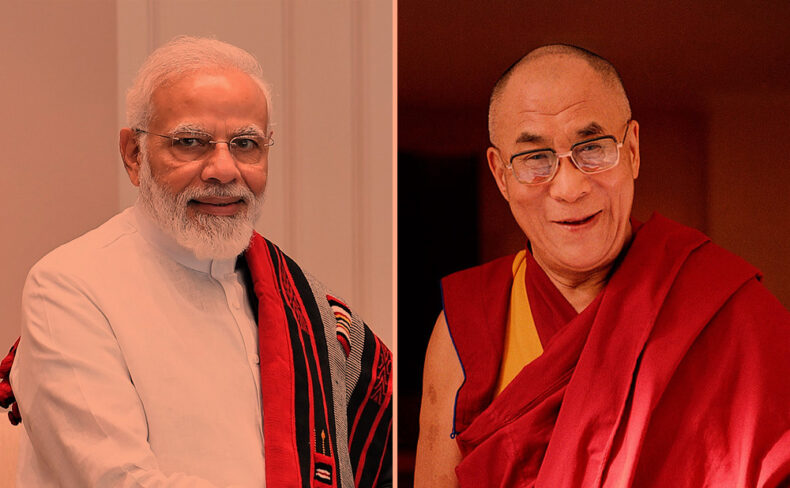India has responded to the statement of China regarding Prime Minister Modi’s birthday Wishes to the Tibetan spiritual leader the Dalai Lama. India has stated that they have been treating The Dalai Lama as an honorable guest in India. It has been the consistent practice of India to offer regard to the Tibetan spiritual leader.
Arindam Bagchi, the spokesperson for India’s External Affairs Ministry, has said that “The Dalai Lama’s birthday wishes from Prime Minister Narendra Modi should be viewed in this larger framework.”
“India has been extending all the required courtesies and Individual freedom to His Holiness the Dalai Lama to conduct his spiritual and religious practices in India,” the official added.
On Wednesday, Prime Minister Narendra Modi stated that he extended his wishes to His Holiness the Dalai Lama on his birthday over a phone call. For the second year in a row, Modi’s public articulation of his call to the Dalai Lama coincided with a deterioration in India-China relations due to the military conflict along the Line of Actual Control (LAC).
Beijing regards His Holiness the Dalai Lama as a “splittist”. These phone calls to him and the public articulation of them by the Indian Prime Minister, Narendra Modi, were said to have political as well as diplomatic significance.
India has insisted that the two neighboring countries should be considerate of their “mutual sensitivities, preferences, and considerations.”
Tsuglagkhang, the primary Buddhist temple in Dharamshala, Himachal Pradesh, hosted a birthday celebration for the Dalai Lama. At a gathering hosted by the Central Tibetan Administration (CTA), hundreds of Tibetans, including monks, nuns, students, and foreign devotees of the Dalai Lama, attended.
Himachal Pradesh’s Chief Minister, Jairam Thakur, virtually attended as the chief guest.
Along with the Indian Prime Minister, several chief ministers and union ministers extended their well wishes to the Dalai Lama. Among those who sent birthday greetings to the spiritual leader of Tibet were Shivraj Singh Chouhan, the chief minister of Madhya Pradesh; Naveen Patnaik, the chief minister of Odisha; and Union Minister Nitin Gadkari.
China has repeatedly asked India to avoid letting the LAC standoff affect the rest of the bilateral relationship. To re-establish the relationship and put it back on track, Chinese Foreign Minister Wang Yi visited India in March of this year. However, New Delhi has insisted that bilateral ties cannot be restored until the border dispute is resolved.
China responded to Prime Minister Narendra Modi for the greeting of the Dalai Lama on his 87th birthday with severe criticism. It stated that India should fully comprehend the exiled Tibetan spiritual leader’s “separatist nature.”
The Chinese response came right after bilateral discussions between Indian External Affairs Minister S. Jaishankar and Chinese Foreign Minister Wang Yi in Bali, which took place in conjunction with a meeting of G20 foreign ministers. See here.
Since 2010, there have not been any formal negotiations between the Chinese government’s representatives and the Dalai Lama or his representatives.
The Dalai Lama is viewed as a polarizing figure by Beijing. It has previously accused him of engaging in “separatist” activities and trying to split Tibet.
The Chinese official said that “India should not “interfere” in China’s internal affairs by raising Tibet-related issues. “
New Delhi has responded by saying that it has been treating His Holiness the Dalai Lama as an honorable guest in the country. The Dalai Lama sees India as a great civilizational force. He has also adopted the country as his motherland.
Moreover, as part of its economic transformation, India may seek to strengthen ties with Taiwan, the world’s leading manufacturer of semiconductors. Intensifying relations will benefit India’s economy while serving as a caveat to China.













